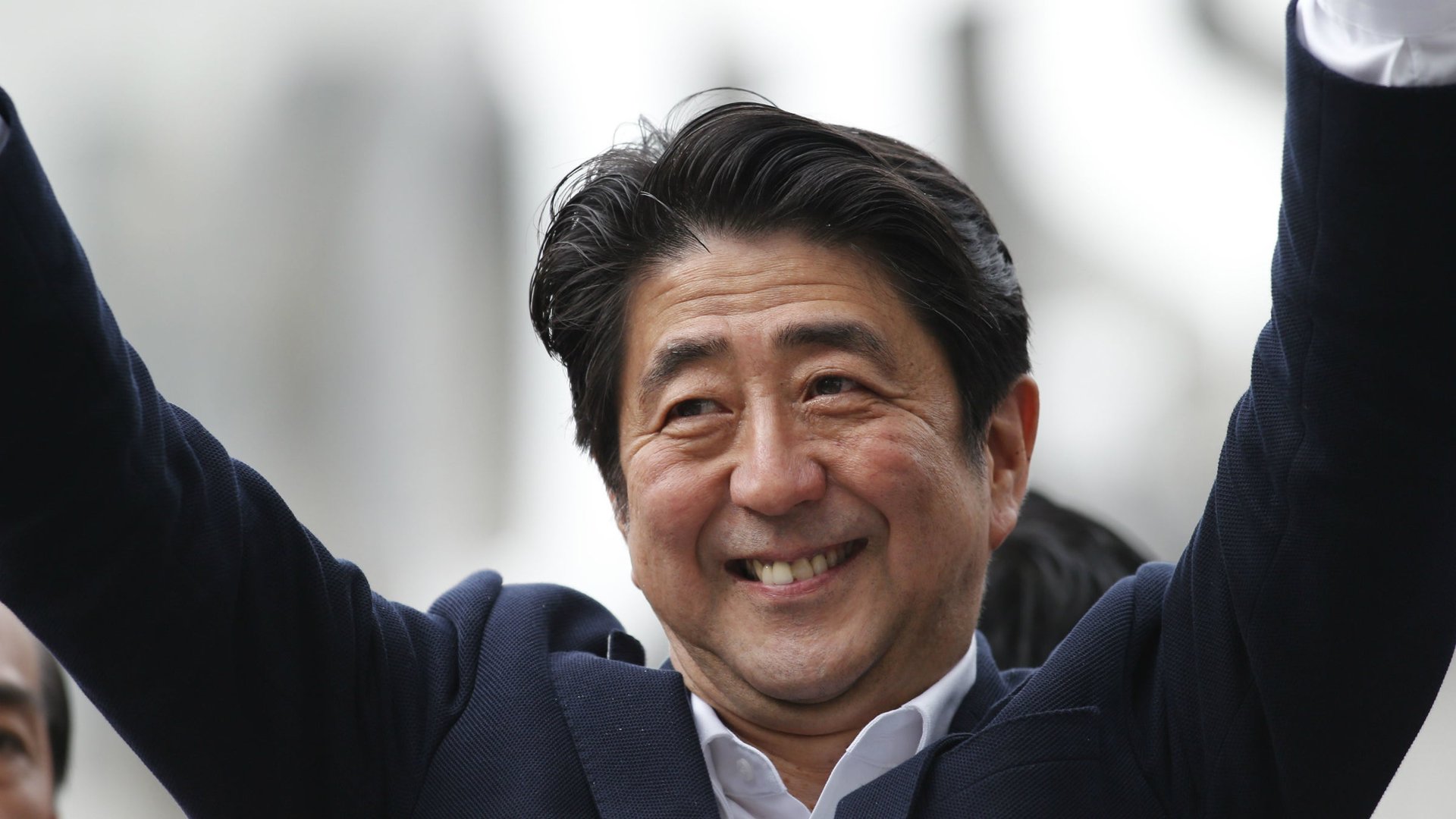Japan’s upcoming elections look likely to give Abe even more firepower
Campaigning kicked off on Thursday across Japan as candidates fight to win control over parliament’s upper house. For prime minister Shinzo Abe the election is two things—a chance to wield even more economic clout, and the opportunity to win a vote of confidence in his economic policies known as Abenomics.


Campaigning kicked off on Thursday across Japan as candidates fight to win control over parliament’s upper house. For prime minister Shinzo Abe the election is two things—a chance to wield even more economic clout, and the opportunity to win a vote of confidence in his economic policies known as Abenomics.
Barring unforeseen political blunders and a sudden collective change of heart, his Liberal Democratic Party should do well when Japan votes on July 21. The upper house is the less powerful of Japan’s parliament, but has been able to block previous legislation. Over two-thirds of Japanese people approve of Abe’s performance, according to most polls, putting the LDP out as a frontrunner in most of the 121 seats (half the upper house) up for grabs. That’s a good place to be if you want to fundamentally overhaul an economy.
But this election is not just about Mr Abe’s ego—if the LDP gets its majority, it will be the first time in 20 years that a single party has had a majority in both houses. The LDP could then easily pursue goals that have so far eluded it, like lowering corporate taxes and setting up special business zones in some big cities. Controversially, Abe might be able to get away with restarting the country’s nuclear reactors, which is something most Japanese people oppose, and altering the country’s pacifist constitution in a move that could upset China.
But while Abenomics would likely receive an initial boost from an implicit vote of confidence in its namesake and his party, not everybody thinks it will be a good thing. Hiroko Ota, an opposition politician and former economics minister, told Reuters that an LDP win would give stability, “but stability creates laxness.” He said that Abe has done the easy bit so far—but that Abe and his party would have to remain determined and committed if Abenomics is ever likely to be called a success.